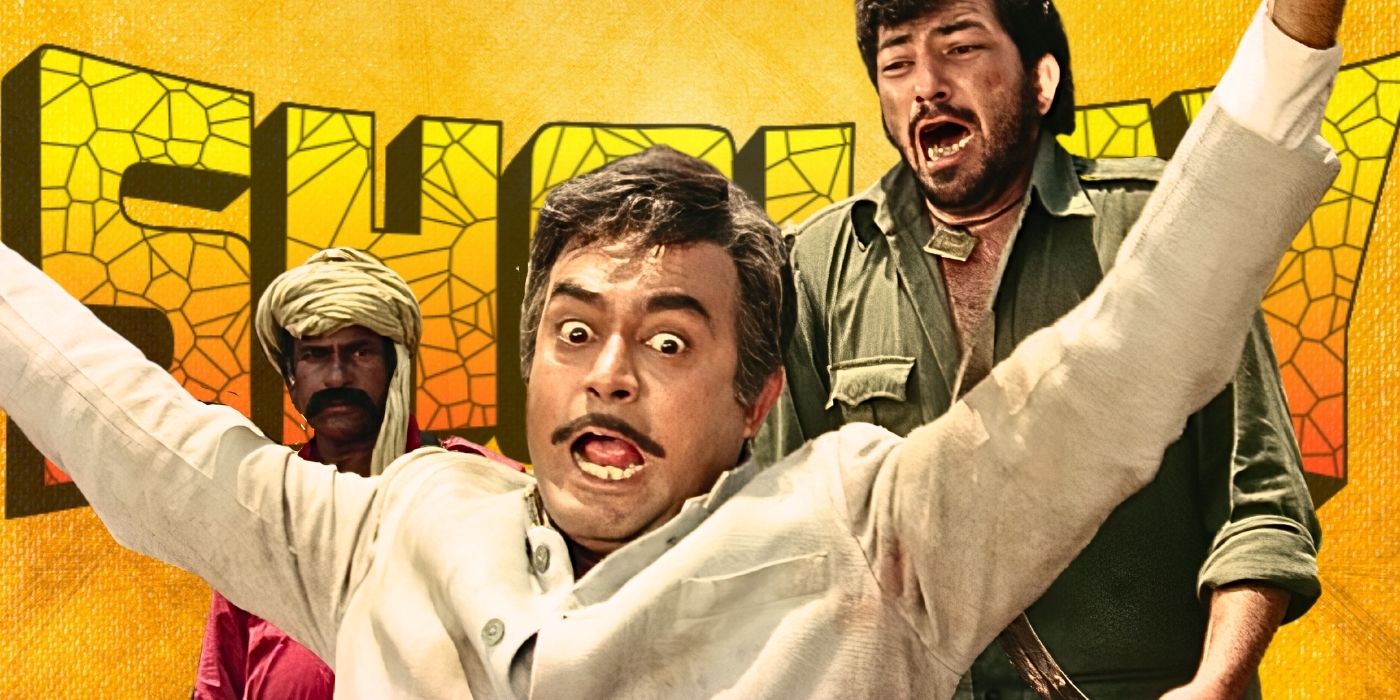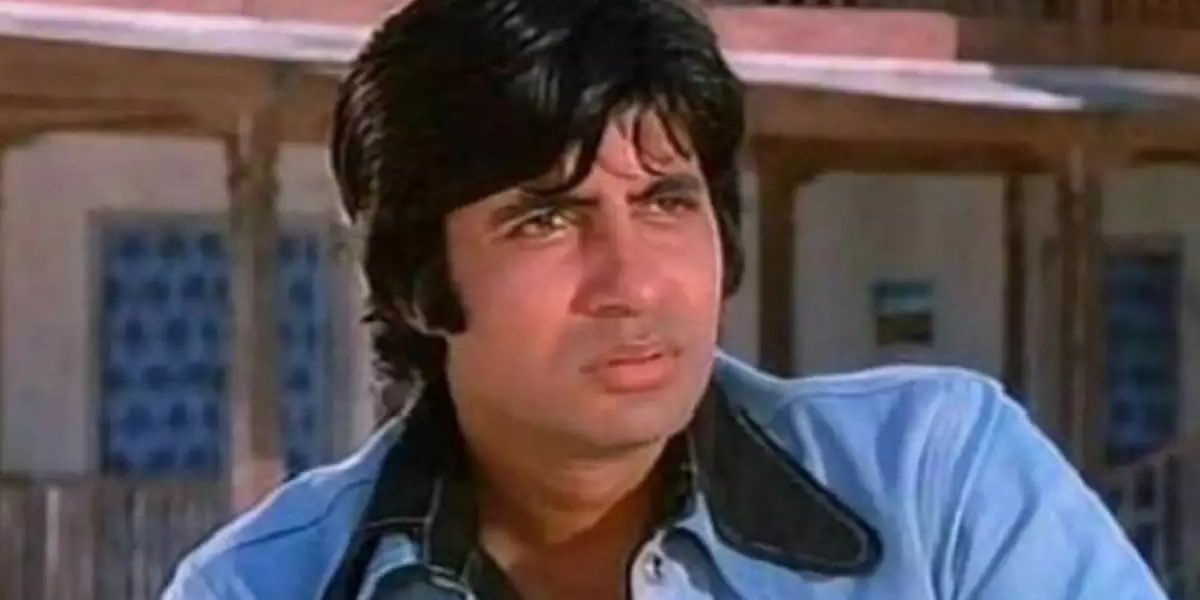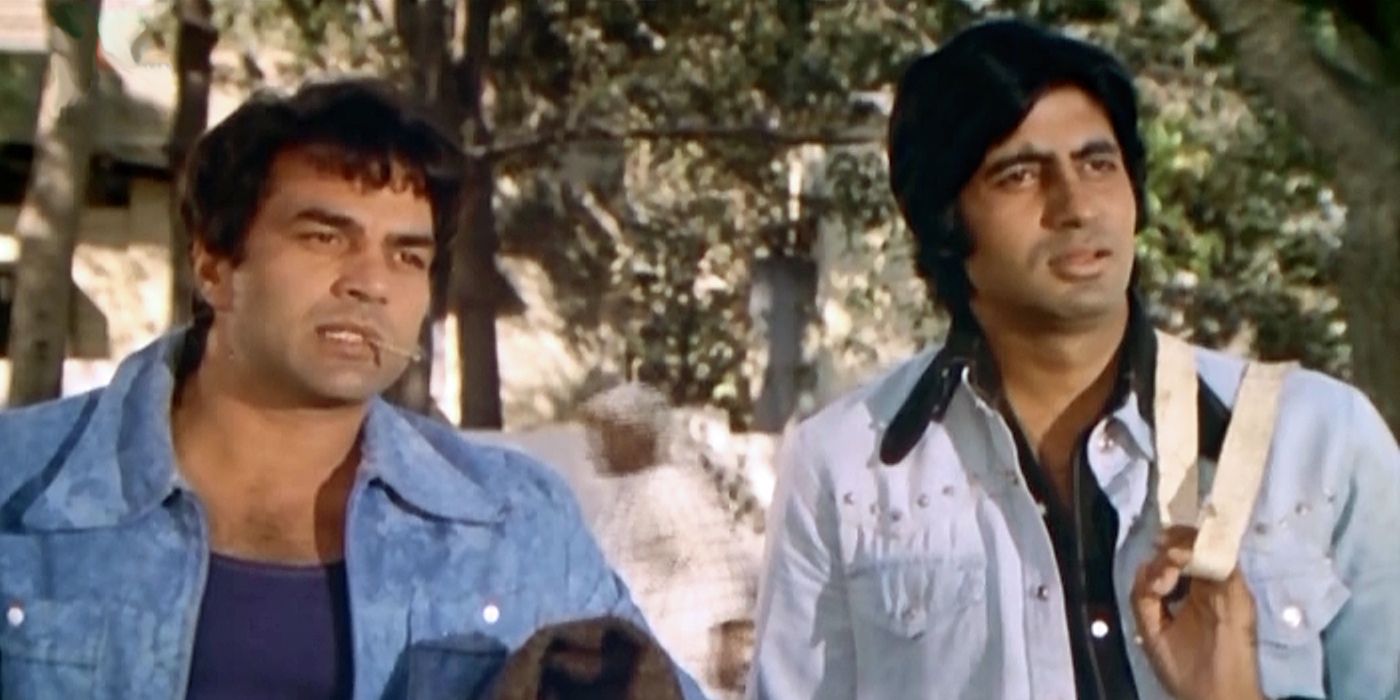It’s a rather silly question to ask an average Indian moviegoer if they’ve ever seen Sholay. Instead, ask them how many times, and you’ll likely receive a double-digit figure. The massive impact that Sholay had on Indian cinema is undeniable. In fact, it’s often said that the Hindi film industry can be divided into two eras — Sholay AD and Sholay BC. Such is the imposing legacy of Sholay, one that transcends time, class, and generations. You are just as likely to find a 25-year-old taxi driver quoting Sholay as you are to find a 70-year-old businessman. The popularity of recent films like RRR and Kantara has sparked a newfound global interest in Indian films, and many cinephiles are looking for a starting point to begin their journey. There could hardly be a better orientation than Sholay. In the true fashion of a masala movie, Sholay has something for everyone.
'Sholay' Is a Melodramatic Masala of Epic Proportions
Sholay doesn’t represent all of Bollywood. But it does serve as a quintessential introduction to the dizzying world of Indian cinema. In Bollywood, a 'masala' movie is one that invites various ingredients from juxtaposing genres and whisks them together to concoct a deeply flavorsome story. And Sholay is lip-smackingly flavorful as it gets. The movie has its main plot as a revenge thriller where a retired police officer, Thakur (Sanjeev Kapoor) wants to exact revenge on a local dacoit, Gabbar (Amjad Khan) for murdering his entire family. To this end, he hires two bold small-time criminals with hearts of gold, Jay (Amitabh Bachchan) and Veeru (Dharmendra).
It is an enticing plot in itself but Sholay wouldn’t be the cult classic it is today if it didn’t meander a little, and meander it does. One moment, it rides a train in barren landscapes gun-fighting bandits on horses, and the very next it turns into a broad slapstick comedy with a Chaplinesque jailer. Soon, it breaks out of jail to initiate its revenge thriller plot, and then, it takes a break from it all to stroll along the rom-com gardens. And not to forget, all of it is punctuated with amazing song-dance numbers in between. These tonal shifts might sound jarring on paper, but the movie has a way of hopping from one genre to another that feels effortless and seamless.
Sholay allows its primary plot to marinate in its own tension while it digresses for lengthy periods to build a compelling and colorful world of characters around it. Each character is highly memorable as they’re all larger-than-life figures in their own right, carrying their distinctive quirks with an exaggeration that latches on to the viewer’s memory. There’s Shoorma Bhopali, a merchant who delights his crowd by spinning lengthy yarns. There’s Thakur, who constantly broods and carries an aura of brokenness after his entire family was brutally massacred. There’s Gabbar, a sadistic lord of bandits who makes Basanti (Hema Malini) dance over broken glass as her lover watches. And of course, there’s Basanti, a charming non-stop chatterbox who rides a chariot and rescues the heroes when they're in a pinch. Even her horse, Dhanno, is difficult to forget.
The movie is earnest about its sentiments and is unashamed about carrying its emotions on its sleeves which feels very refreshing. Every emotion in each scene is heightened to its extreme point, and one can sense that the characters are experiencing the full scope of these intense emotions at a level that’s unattainable in the real world. Every element of each scene is treated with the utmost gravity, and they all come together to craft a movie that feels like an epic folk legend, one that doesn’t demand immersion in the sense that realist movies do but one that invites viewers to witness a fable about a different world. Indeed, Sholay is a loud and proud melodrama, one that doesn’t ask its viewer to step into its characters' shoes, but one that simply revels in its own maximalism.
'Sholay' Is a Western at Heart
For all its genre juggling, Sholay itself exists within the classic Western universe alongside the greats like Once Upon A Time In West, For a Few Dollars More, A Fistful Of Dollars, and other Sergio Leone movies. The movie is set in Ramgarh, a scorching barren landscape where people ride steam rails and wild horses. The village folk live in fear of a local bandit, Gabbar who has a hefty bounty on his head but remains elusive. Gabbar truly is an impactful character, a villain for the ages. He is sadistic, unpredictable, absolutely despicable, and always carries a foul smile that would make even Indio (Gian Maria Volonté) nervous. It takes two angry young men — Jay and Veeru — with a cowboy zeal to finally take down Gabbar for good. Their chemistry is absolutely delightful to watch and is reminiscent of the gun-slinging partnership between Client Eastwood and Lee Van Cleef. The only difference is that Jay and Veeru's friendship elicits much more warmth. Think of the bromance you witnessed in RRR. The set location for the movie is remote and harsh and ascribes a very earthy and dirt-ish aesthetic to the whole affair. Even its protagonists, Jay and Veery, look like the sort of men who like getting down to earth and getting their hands dirty.
The movie’s technical elements also follow along the path of most Westerns. The dynamic camera work adds a dose of dramatization with crash zooms at the villain's face and freeze motions at tragic moments. Indeed, Sholay’s cinematography has a wide range of expressiveness. It subtly sails along a conversation during the introspective moments, and it doesn’t shy away from adding spinning, stylish effects during moments that demand such. Though much of the songs are typical of Bollywood, the fight scenes have the familiar strums of Western rhythms to them. The overall theme of Sholay follows along the line of Spaghetti westerns as a tale with slightly gray heroes, but one with clearly defined boundaries between good and evil. But what’s admirable about Sholay, and perhaps the classic Western in general, is that it flaunts its grandiose story, prose poetry-like dialogue, and intense emotions in all sincerity. And there’s a comfort to be found in these olden stories. As the modern Western list of movies keeps getting flooded with fancy works that seek to subvert and deconstruct the genre, cringing at their classic predecessors, and attempting to outsmart their audience, Sholay just wants to tell a story about the characters it finds interesting. And it's this simplicity that makes Sholay a truly timeless film.



